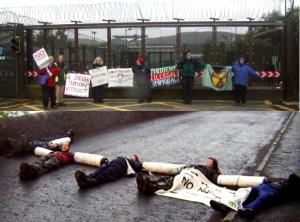“It is our duty to future generations to build nuclear power stations.”
I think I've heard that before. Perhaps when I was a little boy and the Queen opened a plant producing plutonium for British nuclear weapons at Calder Hall (part of the Windscale complex) and emphasised the contribution of its side-product, electricity. Or perhaps it was in the 1970s when I worked on Peace News and we began to campaign against civil nuclear power.
All my life nuclear power has…


